Dry Shampoo Recalls Got You Stressed? Here’s How to Find a Non-toxic Dry Shampoo
Dry shampoo has become a weekly (okay, daily) staple in most women’s beauty routines. It extends the life of a style in between washes, helps absorb excess oil, and refreshes second (or third… or fourth) day hair. It’s a miracle worker, right?
Dry shampoo is a dream for those who aren’t fans of showering daily (no judgment here), busy mommas who hardly have time to wash their hair, or those with limp locks in need of a quick volume boost.
But there are some serious dangers associated with conventional dry shampoos. And with recent dry shampoo recalls skyrocketing, it’s scary out there. Deciphering which ones are safe can be tricky.
So let’s dive right in and uncover the dirt on the conventional dry shampoo model. Plus why you should swap for a non-toxic dry shampoo instead.
Dry Shampoo Recalls
Unfortunately, the recent dry shampoo recalls aren’t the first – or the last recall we’ll see in the beauty industry.
In 2022, an independent lab called Valisure tested 148 samples from 34 different dry shampoo sprays. They found that 70% of the samples contained benzene. And like we said, this isn’t the first (or the last time). A similar batch of data was also recently released for popular sunscreen sprays, antiperspirants, and hand sanitizers.1
The FDA readily admits benzene is a known human carcinogen that causes leukemia and other blood disorders.2
And it wasn’t just small, insignificant amounts (though if you ask us, ANY amount of carcinogens in our products is unacceptable). 11 of the dry shampoo samples tested by Valisure showed levels over ten times more than the limit.3
Though pinpointing the source can be difficult, the FDA admitted that it might be related to thickening agents (carbomers), aerosol propellants, or other hydrocarbon drug components.3 Other sources attribute the contamination to a large lack of oversight + accountability in the personal care industry.
Regardless of why this dry shampoo recall happened, one thing is for sure. There’s no reason to take chances and expose yourself to such dangerous toxins.
(Plus, we have the best non-toxic dry shampoo on the market, but more on that later ;))
How to Find a Non-toxic Dry Shampoo
Greenwashing has tried to convince us that companies are looking out for our best interests (and the planet’s). But sadly, we have to take labels and marketing campaigns at face value.
Only when the FDA cracks down and creates better regulation (and consequences for shady actions) can change begin to happen. So for now, many products will continue to be manufactured with sketchy ingredients, blatantly high levels of contaminants, and a lack of responsibility.
Like most products, the real truth lies in the ingredients. Here’s how to find a safe, non-toxic dry shampoo.
Say No to Aerosol Can Spray
If there are proven carcinogens directly in the dry shampoo ingredient list, that definitely speaks for itself. You should switch to a non-toxic dry shampoo ASAP.But one of the most overlooked factors is the container/method of dispensing.
And no, we’re not talking about the sustainability aspect, though that matters too. (Check out our recycling program for hard-to-recycle items – even non-PP items!)
Here’s the thing: almost all dry shampoos you find at drugstores – or even high-end hair salons – come in aerosol spray cans. This is why knowing how to spot toxins and greenwashing is so important – the health risks aren’t isolated to the ingredients listed on the label.
Your aerosol dry shampoo isn’t non-toxic dry shampoo – here’s why.
Aerosol dry shampoos use a chemical propellant to spray the formula out of the can, onto your hair, and into the air. This colorless, odorless gas is called LPG (Liquefied Petroleum Gas). It’s made up of butane, propane, and isobutane.
Yes, you heard right – propane.
Why aren’t these ingredients (which you might recognize as harmful) listed on the label? Because it’s not technically “part of the formula” – it’s part of the mechanical functioning of the product. Loopholes are everywhere in the beauty industry. (Eye roll!)
Do you really want to spray a product on your hair and around your face with an “EXTREMELY FLAMMABLE” warning on it? Us either. With dry shampoos containing LPG, it’s quite possible your dry shampoo – and your hairstyle – could go up in flames. Yikes.
It’s one of many reasons you need to swap to a non-toxic dry shampoo, as. soon. as. possible.
→ Your hair and scalp will suffer from continued use of dry shampoo from an aerosol can. Plus, have you considered where most of the product is actually ending up? In the air you’re breathing. And chances are you’re spraying that aerosol can in a bathroom – aka a small, contained space lacking ventilation.
You’re breathing synthetic, harmful chemicals directly into your body.
Especially with repeated exposure (did we mention dry shampoo has become a daily staple for most women?). These gasses pose serious health risks.
We’re talking:
- Respiratory issues (which can affect your body’s ability to detox)
- Headaches
- Hormone disruption
- Organ damage (liver and brain specifically)
And it doesn’t end with long-term harm to the body. These gasses are also destructive to the environment and the earth, even if you spray them in an open space.
Avoid Mineral Oils + Petroleum-Based Ingredients
Aside from the obvious flammability aspect, you should stay far away from any petroleum-based ingredient (like vaseline used in typical slugging or mineral oils used in cosmetics). There are just far too many health risks and carcinogenic properties.
A truly non-toxic dry shampoo has no mineral oils or petroleum ingredients – even in the mechanics of how you apply the product.
Boycott Talc on Dry Shampoo Ingredient Lists
Several dry shampoos on the market today (even those that are non-aerosol or claim to be non-toxic dry shampoo) contain talc. Talc isn’t necessarily dangerous, but it’s often contaminated with asbestos, a highly toxic mineral.
For example, baby powder brands have seen recalls due to contaminated talc and consequent cancer risks to consumers. (Remember the Johnson & Johnson recall?)
Asbestos.com readily states that talc is often contaminated and that “asbestos-contaminated talc can cause mesothelioma cancer, ovarian cancer, and other diseases.”4
While talc’s oil-absorbing properties may seem magical, its side effects are not.
There are several other health concerns surrounding the use of talc, including:
- Skin irritations
- Organ system toxicity
- Respiratory distress
As frustrating as it might feel, it’s better to say no to talc in beauty products – especially if you’re looking for a non-toxic dry shampoo.
Dirty Ingredients to Avoid for a Non-Toxic Dry Shampoo
Sadly, the dirt doesn’t end there on dry shampoo.
A couple more chemicals consistently found in traditional dry shampoos are denatured alcohol (seen on labels as “alcohol denat”) and fragrance.
If you’ve been around PP for a while, you know fragrance is code for “chemical cocktail.” The FDA claims this is a proprietary measure to protect brand formulas.
But in reality, it gives far too much freedom to brands that don’t care about toxins.
By law, brands are not required to disclose any information on the exact ingredients (*cough* chemicals *cough*) contained in their “fragrance.” As a beauty business who genuinely cares about your well-being, we don't think this is fair to consumers.
And denatured alcohol (now banned in California)5 is poisonous when consumed. So you definitely don’t want to apply it directly to your skin or breathe it in – in any form.
Both of these toxic ingredients can:
- Irritate your scalp
- Damage your hair
- Harm your health
- Mess with hormones
In this case, the best way to protect yourself from toxic exposure is by sticking with a non-toxic dry shampoo (check out ours) that adheres to all these guidelines. Or maybe you’re in a pinch or want to explore making your own non-toxic dry shampoo – we have a guide for that too. ;)
In Our Book, Non-toxic Dry Shampoo Is the Only Option
We love a good hair day as much as the next, but babe, your hairstyle is so not worth it.
Because of the dirt we dug up about dry shampoos (even long before the massive dry shampoo recall), we knew we needed to create a non-toxic solution for our community. We needed to provide a non-toxic dry shampoo for our anti-daily-showerers, busy moms, and fine-haired friends.
So that’s exactly what we did.
Our 100% natural + non-toxic dry shampoo won’t cause your hair (or anything) to catch on fire.
Our non-toxic dry shampoo is formulated with oil-absorbing kaolin clay and arrowroot powder to freshen up any style while adding texture + volume to your gorgeous hair. You’ll love the scent of our non-toxic dry shampoo. It’s scented only with…
- Organic essential oils of grapefruit for natural cleansing properties
- Lavender to soothe your scalp
- Peppermint to stimulate your hair growth
Our dry shampoo leaves your hair smelling + feeling fresh.
Now you don’t have to sacrifice your health – or your hairstyle.
Non-toxic dry shampoo that works – at your service.
XO
Sources:
- LA Times | Is Your Dry Shampoo Safe? Even More Brands Found to Have Cancer-Causing Agent
- https://www.fda.gov/drugs/pharmaceutical-quality-resources/fda-alerts-drug-manufacturers-risk-benzene-contamination-certain-drugs
- CNN Health | Independent Lab Finds ‘Troubling’ Levels of Cancer-Causing Chemical in More Types of Dry Shampoo Products, Report Alleges
- Asbestos.com | Talcum Powder and Asbestos
- Times Mojo | Can You Still Buy Denatured Alcohol in California?
Pin your fav blog post below:



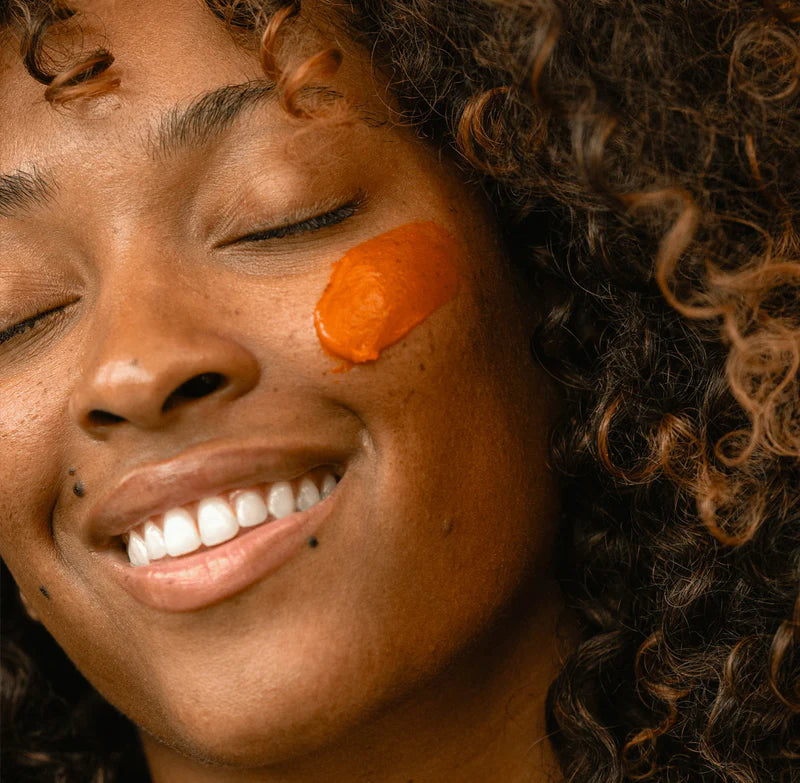

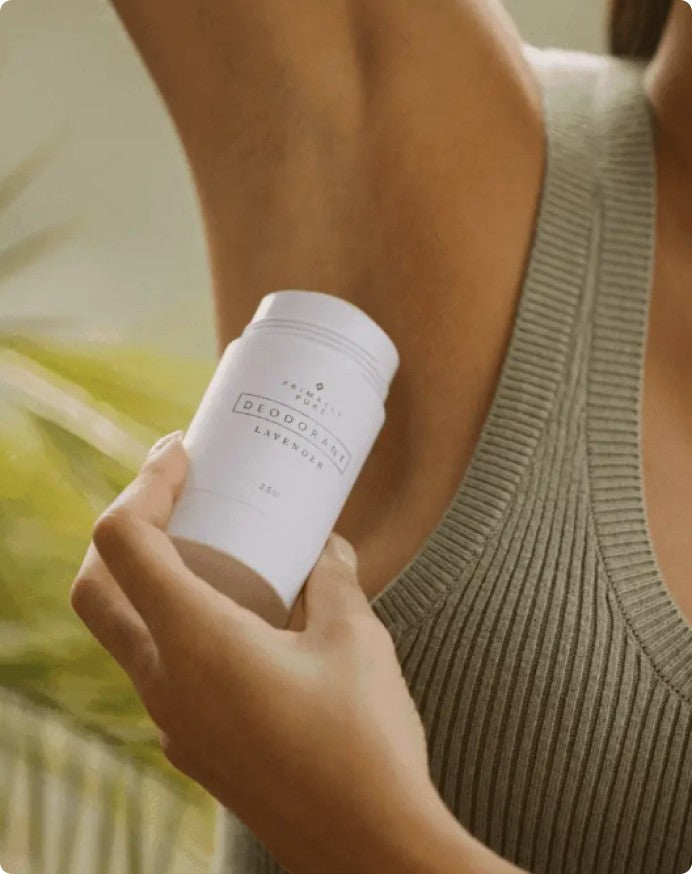
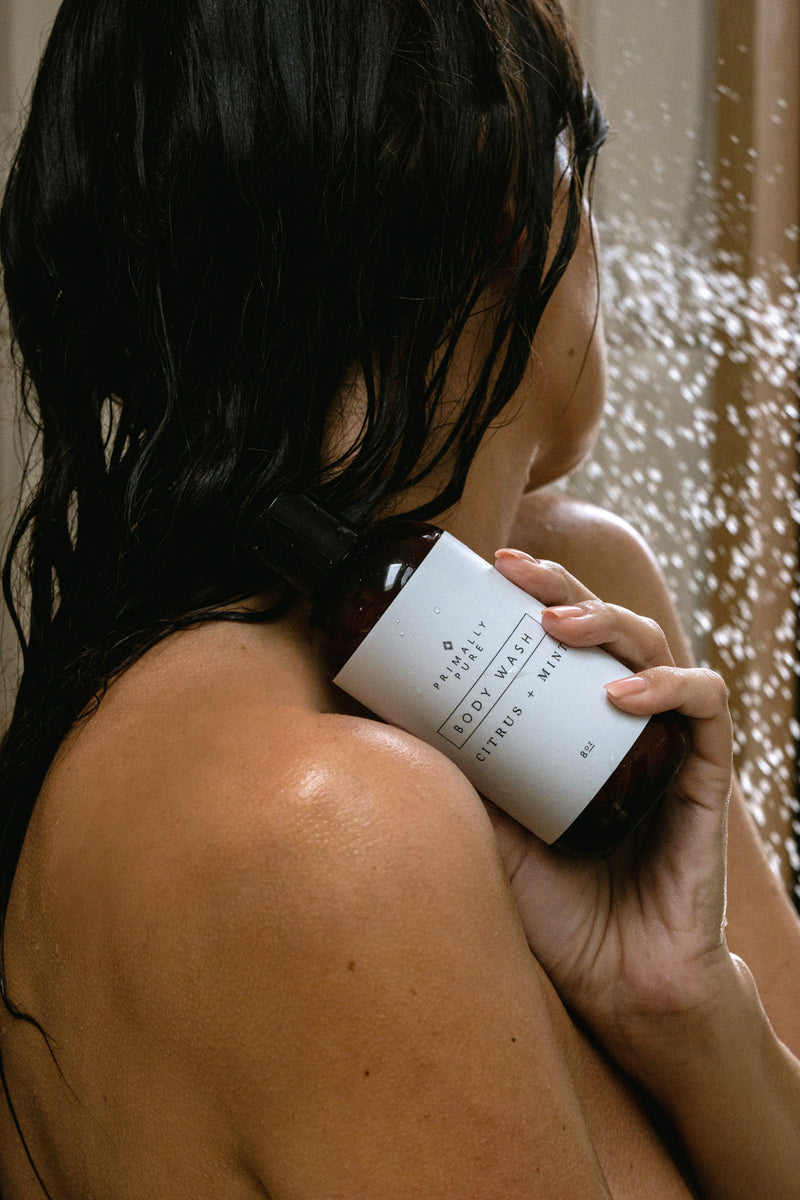

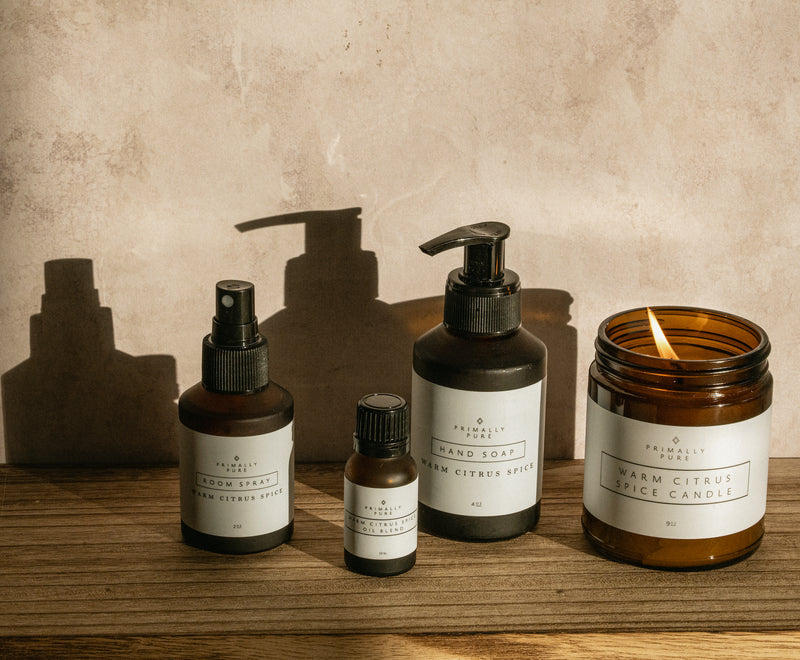
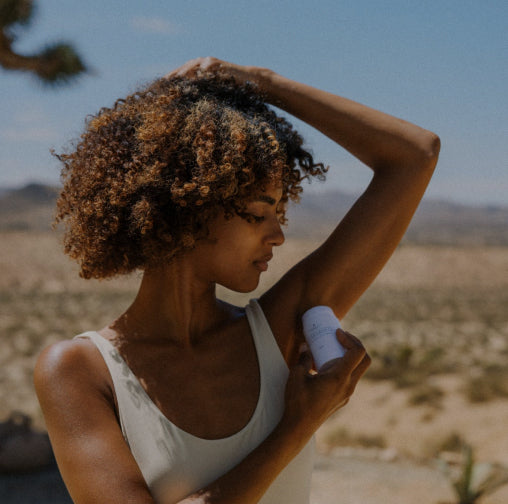
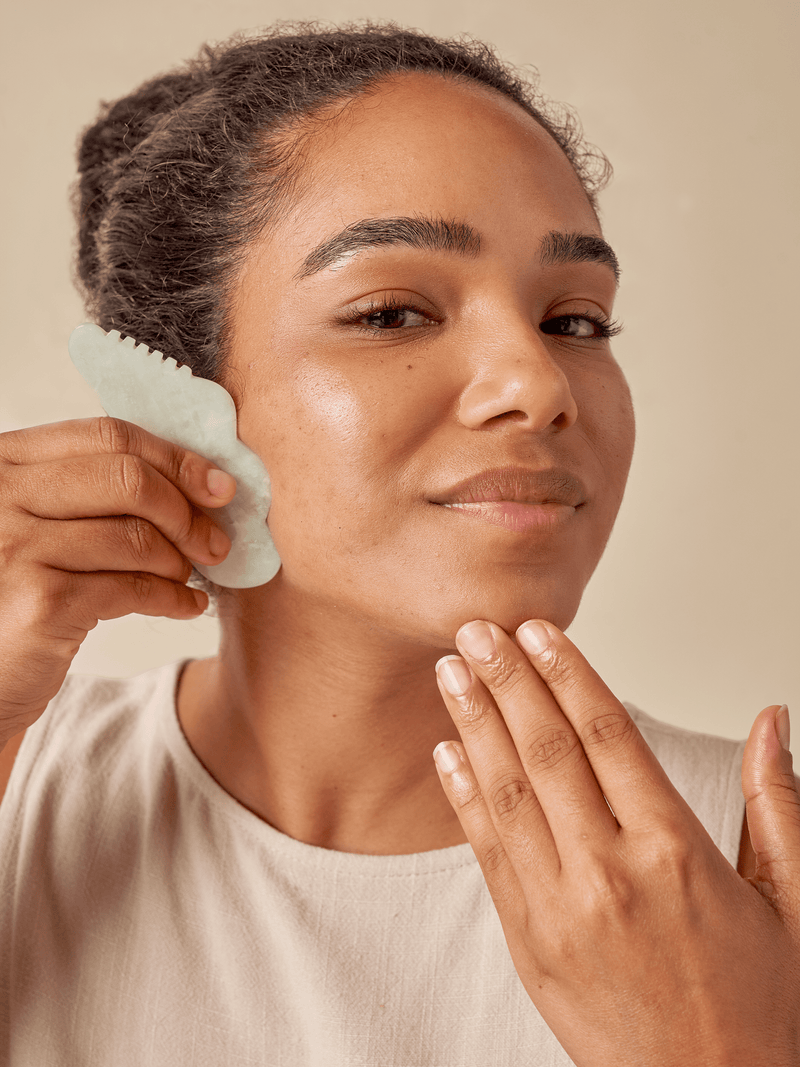
Leave a Comment